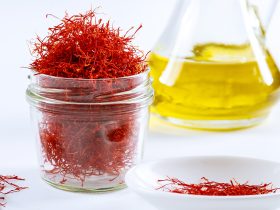Amino acids often take the spotlight primarily in discussions about muscles, but their benefits extend beyond that.
The amino acid taurine, in particular, possesses notable antioxidant effects in the body, impacting various aspects from the inflammatory response to exercise performance, and even the health of your heart and brain.
Let’s delve deeper into this crucial amino acid and understand why maintaining adequate levels of taurine becomes increasingly important, especially as you age.
What is taurine?
Taurine is a naturally occurring amino acid in the human body and is considered one of the most abundant.
Unlike many amino acids, taurine exists as a free amino acid, meaning it does not get incorporated into proteins but is present on its own in body tissues. It plays a crucial role in various bodily functions.
Taurine is vital for energy production and supports mitochondrial health. This is why it is sometimes added to energy drinks. It also helps regulate water balance and the levels of calcium and potassium within cells.
The body can synthesize taurine from other amino acids, and it is also found in certain foods, particularly in shellfish such as mussels, scallops, and clams. Additionally, dark meat from chicken and turkey contains taurine.
Taurine concentrations tend to decline with age. Research indicates that by the age of 60, the body may have only about one-third of the taurine levels present during childhood.
Scientists are actively researching the health implications of lower taurine levels and whether supplementing it could be beneficial, especially in older individuals.
Understanding the importance of taurine in energy metabolism, cellular regulation, and its decline with age is prompting investigations into its potential role in supporting overall health.
Enhancing physical performance with taurine
The impact of taurine on exercise performance has been the subject of extensive research, particularly in humans.
A recent evaluation, documented in a 2021 study featured in the Journal of the International Society of Sports Nutrition, delves into the connection between taurine and physical activity by analyzing data from 19 distinct studies.
According to the findings, a daily intake of 1 to 3 grams of taurine, consumed one to three hours prior to engaging in physical activities, has demonstrated notable benefits. These advantages encompass improved aerobic performance, reflected in factors like extended endurance, as well as enhanced strength, power, and reduction in muscle soreness.
Additionally, markers of metabolic stress, such as lactate levels, also showed positive responses to taurine supplementation.
Researchers attribute these performance enhancements to taurine’s involvement in energy production, particularly its influence on fat utilization, and its ability to manage oxidative stress.
These aspects collectively contribute to the positive impact of taurine on exercise performance.
If you want to get started with fitness, use our beginner’s guide to exercising and improve your health.
Promoting heart health with taurine
Taurine has shown potential in supporting cardiovascular well-being, although current research in this area is in its early stages.
A significant portion of the available data on taurine and its impact on heart health is derived from studies conducted in controlled environments, either within laboratory dishes or using animal models.
Despite the preliminary nature of this information, it remains valuable as it unveils insights into the mechanisms through which taurine may influence heart function.
According to a review from 2023 exploring taurine’s role in heart health, researchers highlight its ability to enhance cardiac contractility and improve heart function, observed in both human and animal subjects.
This correlation is plausible given that taurine constitutes approximately half of the total free amino acids present in the heart. The review also emphasizes promising findings indicating that taurine contributes to improved blood vessel health and promotes optimal blood pressure.
These cardiovascular benefits are thought to be, at least in part, associated with taurine’s antioxidant properties and its capacity to modulate energy.
Nevertheless, it is crucial to note that further research is necessary to deepen our understanding of these potential advantages.
Boosting cognitive function with taurine
Taurine, a significant free amino acid found prominently in the nervous system, particularly in the brain, plays crucial roles in neurological functions.
Functioning as a neurotransmitter, taurine contributes to maintaining the integrity of the nervous system and neurons while also regulating calcium transport. Its presence in the brain has been associated with potential impacts on mood and feelings of anxiousness.
Studies have indicated a connection between lower levels of taurine in the hippocampus and challenges with mood among women under 30.
However, it’s important to note that additional research is required to explore whether the consumption of taurine, especially through supplementation, could offer potential solutions to these concerns.
Optimizing taurine intake for your well-being
Ensuring an ample supply of taurine for your body can be achieved by incorporating animal proteins like shellfish, meat, and poultry into your diet.
However, if this proves challenging, especially for those following a predominantly vegetarian diet, or if you wish to maximize the benefits of taurine, considering a supplement might be a suitable choice.
Some supplements combine creatine and taurine, offering even more benefits. Creatine is also known for enhancing exercise performance and recovery, a benefit that tends to decline with age.
Key points to remember
Taurine, although not widely recognized, is gaining importance in the realm of health. The research underscores its significance in various chemical processes, emphasizing that insufficient taurine levels in tissues may have adverse effects on health.
Human studies, particularly focusing on muscle and exercise benefits, indicate positive outcomes from daily supplementation with 1-3 grams of creatine for muscle health and exercise performance.
While ongoing research aims to deepen our understanding, individuals over 60, and those who engage in physical activity or maintain a predominantly plant-based diet may find potential benefits from incorporating a taurine supplement into their routine.
Keep an eye out for further developments in this area as more research unfolds.
















Find Us on Socials